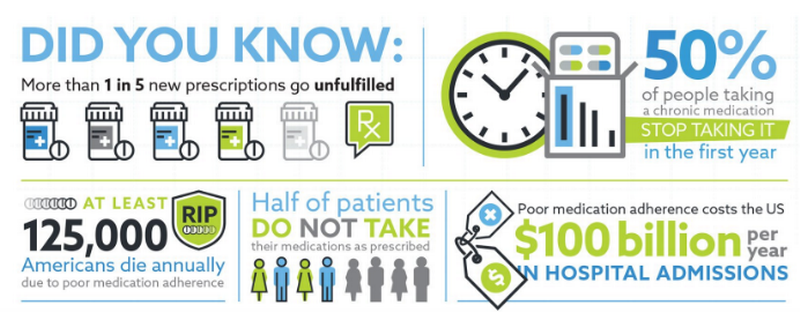Why should insurance companies provide or subsidize adherence tools to their customers? Because they have everything to lose, including loss of life.
- Up to 75% of people with chronic conditions don’t take their medicine as directed—by missing a dose, not refilling their prescription on time or not taking their medication at all. Medication non-adherence results in countless unnecessary negative and sometimes dangerous health outcomes, including rehospitalizations and worse. It also imposes a nearly $300 billion cost on the healthcare system in the U.S.
- According to the World Health Organization, medication adherence can have a more direct impact on patient outcomes than the specific treatment itself.(1) Medication adherence can affect quality and length of life, health outcomes, and overall healthcare costs.(2|3) Nonadherence can account for up to 50% of treatment failures, around 125,000 deaths, and up to 25% of hospitalizations each year in the United States.
- 1. Brown MT, Bussell JK. Medication adherence: WHO cares? Mayo Clin Proc. 2011;86(4):304-314.
- 2. Sabaté E. Adherence to long-term therapies: evidence for action. Geneva: World Health Organization. 2003. www.who.int/chp/knowledge/publications/adherence_report/en/. Accessed June 10, 2017.
- 3. DiMatteo MR, Giordani PJ, Lepper HS, et al. Patient adherence and medical treatment outcomes: a meta-analysis. Med Care. 2002;40(9):794-811.

